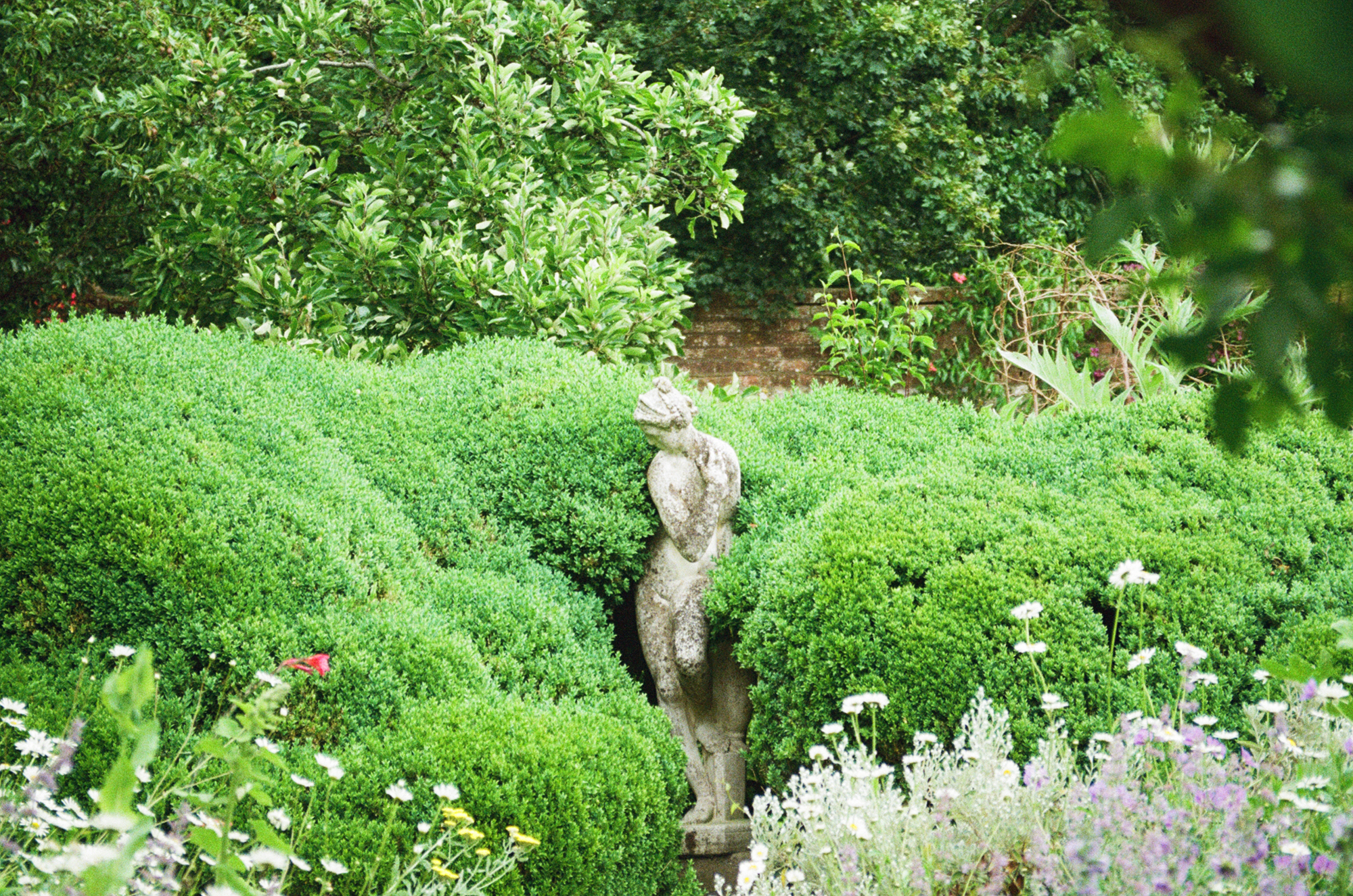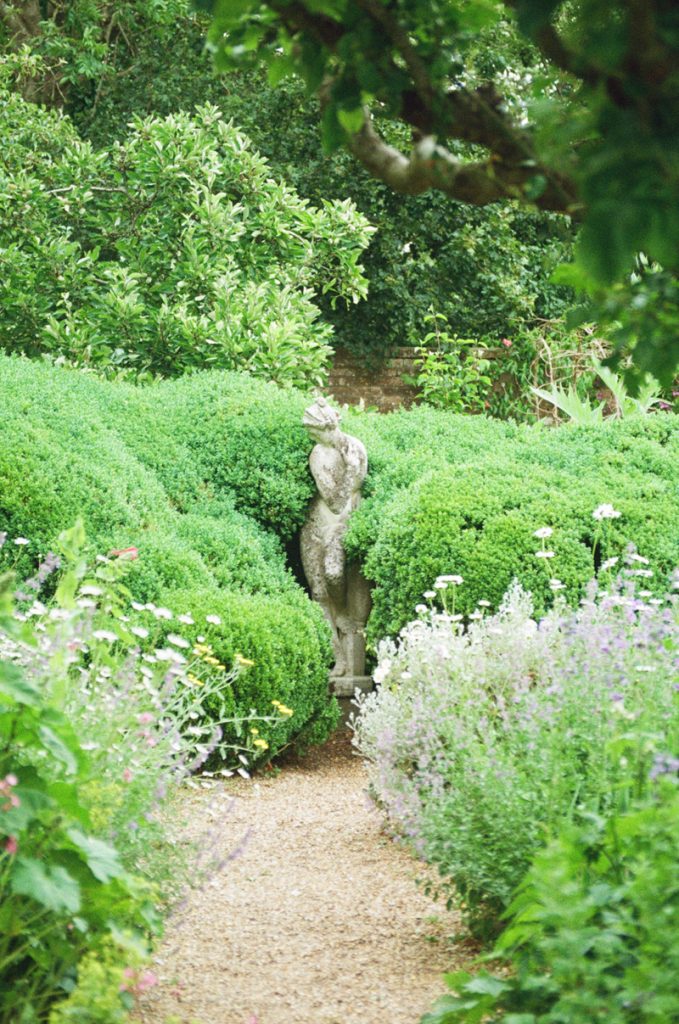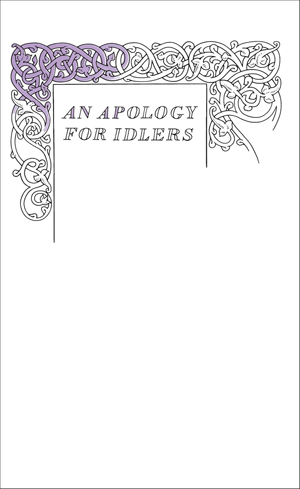
Success in life
“There is no duty we so much underrate as the duty of being happy.”
ROBERT LOUIS STEVENSON (13th November 1850–3rd December 1894) is best known for his tales of high adventure and moral complexity—Treasure Island, Kidnapped and Dr Jekyll and Mr Hyde chief among them. And yet, beneath the swashbuckling narratives and psychological intrigue lies a subtler current: a profound appreciation for the interior life. Born in Edinburgh to a family of engineers and lighthouse designers, Stevenson was chronically ill for much of his life, a circumstance that perhaps inclined him more readily towards philosophical reflection and the unhurried pleasures of the contemplative life. His travels, illnesses and bohemian spirit all seem to conspire to produce a voice that is both worldly and wise.
In An Apology for Idlers, first published in 1877, Stevenson defends the life of ease, idleness and seemingly unproductive leisure against the industrious norms of Victorian society. Far from being a call to laziness, the essay is a spirited and elegant critique of the tyranny of busyness and a gentle invitation to live more attentively, more receptively and more presently in the moment. With his characteristic charm and rhetorical agility, Stevenson suggests that time spent wandering, conversing or simply doing nothing is not wasted but quietly formative—shaping the soul in ways that the ticking clock and the ledger never could.
Read through the lens of nondual insight, Stevenson’s essay is not merely a defence of idleness but an expression of life lived beyond the ego’s compulsion to prove and perform and simply enjoy itself for enjoyment’s sake, ideas that he would develop further in Travels with a Donkey in the Cévennes, a pioneering classic of “outdoor literature”. Lyrically gesturing toward a quieter reality in which being is not subordinate to doing and where value is intrinsic rather than measured, Stevenson reminds us that it is in the spaces between achievements—in the silence, the stillness, the so-called idleness—that we may come closest to the heart of things.
Extreme busyness, whether at school or college, kirk or market, is a symptom of deficient vitality; and a faculty for idleness implies a catholic appetite and a strong sense of personal identity. There is a sort of dead-alive, hackneyed people about, who are scarcely conscious of living except in the exercise of some conventional occupation. Bring these fellows into the country, or set them aboard ship, and you will see how they pine for their desk or their study. They have no curiosity; they cannot give themselves over to random provocations; they do not take pleasure in the exercise of their faculties for its own sake; and unless Necessity lays about them with a stick, they will even stand still.
It is no good speaking to such folk: they cannot be idle, their nature is not generous enough; and they pass those hours in a sort of coma, which are not dedicated to furious moiling in the gold-mill. When they do not require to go to the office, when they are not hungry and have no mind to drink, the whole breathing world is a blank to them. If they have to wait an hour or so for a train, they fall into a stupid trance with their eyes open. To see them, you would suppose there was nothing to look at and no one to speak with; you would imagine they were paralysed or alienated; and yet very possibly they are hard workers in their own way, and have good eyesight for a flaw in a deed or a turn of the market.
They have been to school and college, but all the time they had their eye on the medal; they have gone about in the world and mixed with clever people, but all the time they were thinking of their own affairs. As if a man’s soul were not too small to begin with, they have dwarfed and narrowed theirs by a life of all work and no play; until here they are at forty, with a listless attention, a mind vacant of all material of amusement, and not one thought to rub against another, while they wait for the train. Before he was breeched, he might have clambered on the boxes; when he was twenty, he would have stared at the girls; but now the pipe is smoked out, the snuff-box empty, and my gentleman sits bolt upright upon a bench, with lamentable eyes. This does not appeal to me as being Success in Life.
Post Notes
- Feature image: © Paula Marvelly, Charleston
- John Ruskin: On Art and Life
- Henry David Thoreau: Walking
- Hannah Peschar Sculpture Garden & Zen Master Ryokan
- Antony Gormley: Sculpted Space Within and Without
- Matsuo Bashō: Deep Silence
- Matsuo Bashō: The Narrow Road to the Deep North
- Ralph Waldo Emerson: Nature
- Wassily Kandinsky: Concerning the Spiritual in Art
- Rollo May: My Quest for Beauty
- Alan Watts: Cloud-Hidden, Whereabouts Unknown
- Jack Kerouac: Alone on a Mountaintop
- The Culturium uses affiliate marketing links via the Amazon Associates Programme


